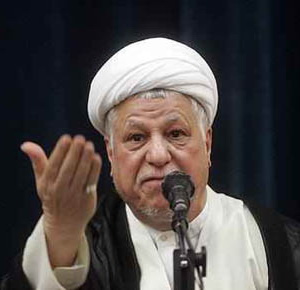Ministry of Foreign Affairs or Ministry of Formalities

Foreign Ministry’s bill in Ahmadinejah’s tenure

Unfortunately Ahmadinejad’s administration hasn’t used the past experiences at all. With the principles set by the Supreme Leader, we could have followed an
effective proactive policy. However, instead of being assertive, our foreign policy has turned into an adventurous one expanding Iran’s spheres of national threat. This is conspicuous in both regional and international domains.
In fact, Ahmadinejad administration’s foreign policy lacks coherence. This trend, observable in the policy-making body, the executive body, and in parallel institutions that direct our foreign policy has turned many opportunities into threats and caused a multitude of problems which we don’t know how, with what price, and when we can overcome.
We are facing challenges in Middle East and against Arab states. In fact, our hasty, incorrect attempts to get closer to some Arab countries has repelled these countries, and as a great, revolutionary country, Iran doesn’t deserve this. These countries should bow to the grandeur of our country and our revolutions but our brash behavior and poorly-planned visits to these countries has had a reverse effect.
Currently we are having serious problems with Europe. And our relations with Far East and South East Asian countries suffers from our struggles with the international community, mostly West. We are facing a serious diplomatic recession which has had its own aftermath in political and economic domains.
In our relations with International Atomic Energy Agency, despite the maximum of cooperation we could have, Iran’s file hasn’t been closed yet. Of course our current cooperation is not comparable with the one in Khatami’s administration.
We have faced four resolutions in United Nation’s Security Council. In our interaction with the United States we have acted without due consideration and now the Americans do not know who they should talk to in Iran.
All these show that our proactive foreign diplomacy lacks rigid mental map, coherent system of management and thought-out rhetoric. These could help us to pursue our proactive policy peacefully and smoothly.
These are all the weak points of Ahmadinejad’s foreign relations’ apparatus which give it a failed record. The bottom line is that this apparatus has become much weaker than before. In fact, it has become dysfunctional. With all the support for parallel organizations, ministry of foreign affairs has in fact turned into ministry of formalities and its administrative role has been reduced to a minimum, which is extremely harmful for the our government and our bureaucracy.

